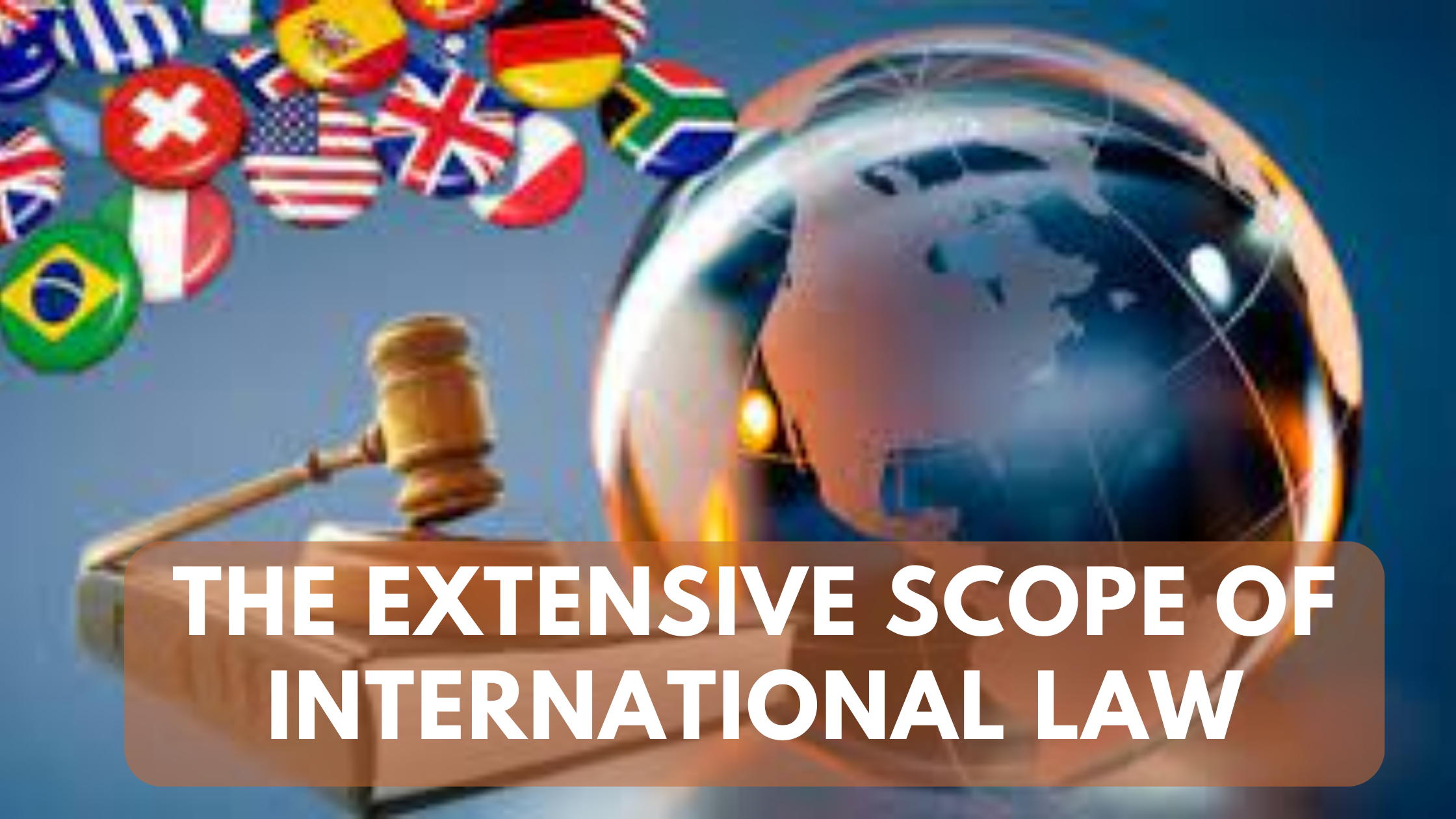The Extensive Scope of International Law
Introduction
International law, a dynamic and ever-evolving field, encompasses many legal principles and norms that regulate interactions between sovereign states, international organisations, and individuals on the global stage. As the world becomes increasingly interconnected, the scope of international law has expanded, offering diverse and challenging opportunities for legal professionals. The scope of international law is expansive and dynamic, encompassing diverse areas ranging from human rights and diplomacy to trade and environmental protection. This blog explores the multifaceted scope of international law, highlighting the various avenues and its crucial role in addressing global challenges.
Diplomacy and Foreign Relations
One of the primary domains within the scope of international law is diplomacy and foreign relations. International law provides the legal framework for diplomatic interactions between nations, shaping treaties, agreements, and conventions that facilitate cooperation and peaceful coexistence. Diplomats and legal experts work collaboratively to navigate complex international issues, fostering relationships and resolving disputes diplomatically. With its various agencies and bodies, the United Nations serves as a platform for diplomatic efforts to maintain international peace and security.
Human Rights and Humanitarian Law
One of the most significant facets of international law lies in human rights. International human rights law establishes the rights and freedoms inherent to all individuals, regardless of nationality or ethnicity. Professionals in this field work with international organisations, non-governmental organisations (NGOs), and governmental bodies to address issues such as discrimination, torture, and the protection of vulnerable populations. The International Criminal Court (ICC) serves as a prominent forum for prosecuting individuals accused of committing grave offences, emphasising accountability on a global scale.
International Criminal Law
International Criminal Law is a branch of law that deals with the prosecution of individuals for crimes against humanity, war crimes, genocide, and other serious international crimes. It is a complex and specialised field that aims to hold perpetrators accountable and ensure justice for victims of these crimes. The establishment of institutions such as the International Criminal Court (ICC) has elevated the role of international criminal law. International criminal lawyers play a crucial role in holding perpetrators accountable and seeking justice on a global scale.
Trade and Business Law
International trade and business law govern transactions and disputes across borders. Legal professionals specialising in international trade are responsible for navigating complex regulatory frameworks, negotiating trade agreements, and resolving disputes that arise from multinational business activities. Harmonisation of trade laws contributes significantly to the growth of global economies.
Environmental Law and Sustainable Development
The scope of international law extends to environmental protection and sustainable development. Legal experts work on treaties and agreements addressing issues such as climate change, biodiversity conservation, and the responsible use of natural resources. International environmental law is pivotal in fostering global cooperation to tackle pressing ecological challenges.
Arbitration and Dispute Resolution
International law offers a platform for resolving disputes between states, organisations, and individuals through arbitration and alternative dispute resolution mechanisms. Arbitrators and legal practitioners in this field facilitate negotiations, ensuring fair and impartial resolution processes that avoid protracted legal battles.
Cross-Cultural Collaboration
A unique aspect of international law is its cross-cultural dimension. Professionals in this field must navigate diverse legal systems, languages, and cultural norms. Fluency in multiple languages, cultural sensitivity, and a deep understanding of global affairs are essential for effective engagement in the international legal arena.
Conclusion
The scope of international law is expansive and dynamic, reflecting the complexity of our interconnected world. Legal professionals in this field find themselves at the forefront of addressing pressing global issues, from human rights violations to environmental challenges. As the international legal landscape continues to evolve, the demand for experts in international law is set to grow, offering a diverse range of career opportunities for those passionate about shaping a more just and harmonious world. The significance of international law in fostering cooperation, ensuring justice, and maintaining global order underscores its pivotal role in the contemporary legal arena.

